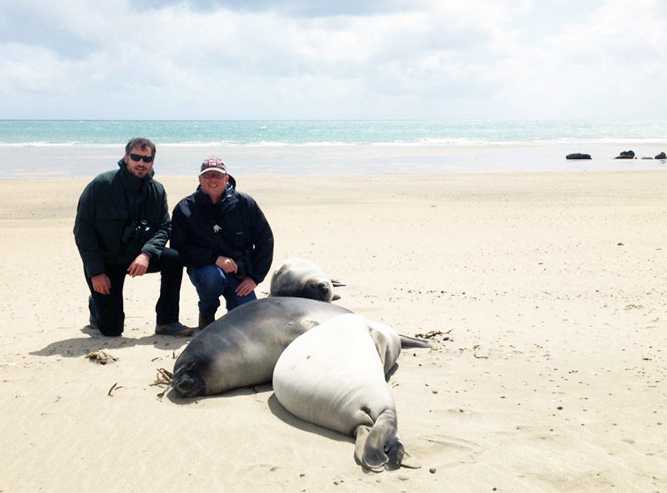Faculty grant expands global learning opportunities

Internationalizing the Cornell Curriculum (ICC) grants support more than two dozen faculty members who are developing new global experiences for students.
Proposals for the 2016 grants are due Feb. 8. Information about applying for a grant is available on the Global Cornell website.
One new initiative made possible with an ICC grant is Ecology and Conservation of Wildlife in the Neotropics, a seven-week undergraduate seminar with a field research component in Argentina. Development of this course is supported by an ICC grant awarded to Irby Lovette, the J. Fuller Professor of Ornithology, and Leonardo Campagna, postdoctoral associate in the Fuller Evolutionary Biology Program in the College of Agriculture and Life Sciences.
“Right whales, elephant seals, guanacos, grisson, sheathbills, penguins, giant petrels, black-browed albatross, Olrog’s gull, Chabut steamer-ducks and more. Fossils everywhere.” That is how Lovette describes coastal Patagonia close to the city of Puerto Madryn, a biologically rich setting that provides unprecedented access to marine and terrestrial wildlife as well as exposure to a range of real-world conservation challenges.
In October, Lovette and Campagna traveled to Puerto Madryn to finalize plans for the new Patagonia field research components for their undergraduate seminar, Bioee525 (fall) and 526 (spring). They met with local collaborators and logistical providers, completed risk planning and developed exercises for students to complete during their winter break fieldwork.
Realizing the Patagonia field component would also provide global learning opportunities for the instructors, Lovette completed a 10-day intensive Spanish immersion course this past summer at Dartmouth College.
Twelve students (the target enrollment the instructors set for the pilot course) are in Argentina with Lovette and Campagna to conduct their field research. The field stations are located in a UNESCO world heritage site around Península Valdés, Chubut province.
“Students will learn about the conservation problems faced by a significant wildlife reserve,” says Lovette. “This includes urbanization and habitat modification, and collaborations and conflicts among marine wildlife managers, ecotourism operators and fishing authorities.”
Through the course students will gain an integrated understanding of neotropical ecology, behavioral ecology, evolutionary biology and conservation biology. “Most importantly,” says Lovette, “they will gain the practical skillsets to frame and answer questions on conservation issues in varied social, economic, and cultural settings.”
Media Contact
Get Cornell news delivered right to your inbox.
Subscribe